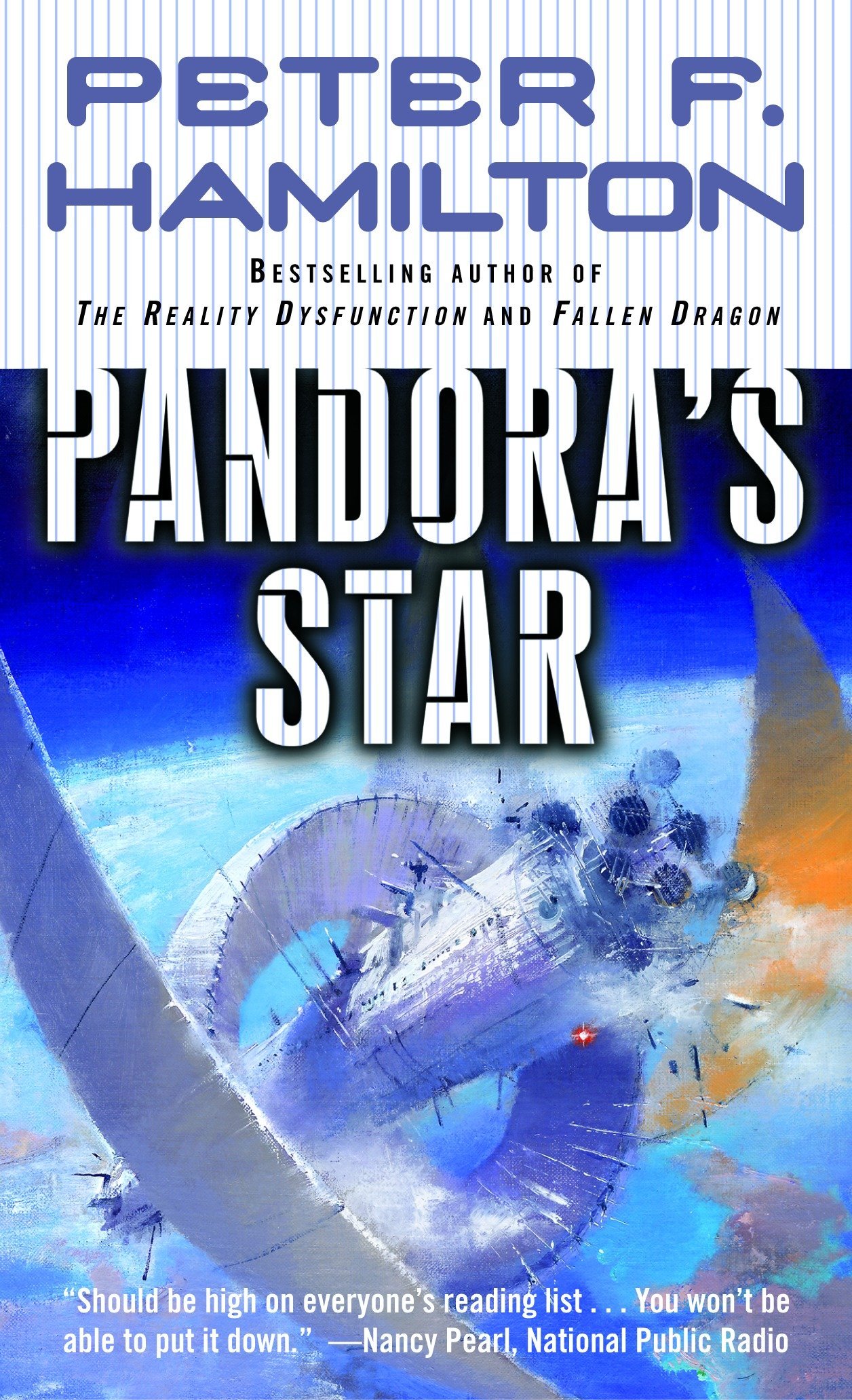Pandora's Star

Review
I couldn’t put Pandora’s Star down! It is a sci-fi book that reads more like a thriller. There were always new mysteries that just a few more pages promised the answers to.
The book takes place in a universe where trains running through interstellar wormholes are the main form of transportation. It deals with themes of:
-
Inequality, which is rampant, with the richest families (called dynasties) owning entire planets.
-
Life, death, and the self, since Humans can’t really die because everyone has a memory backups that can be loaded into a new clone. Some of the characters struggle with the idea that the clone is not really them (something I agree with) but this is sort of glossed over in the book.
-
Family, since people don’t die, families are huge but less tightly-bound. Marriages last a few decades and people know they’ll end before they begin. And of course the largest companies are the dynasties themselves.
But it doesn’t really linger on these questions; it’s an action movie in book form.
The main plot kicks off when a star suddenly disappears. The humans, being curious, decide to find out why. This forces the human Commonwealth to build their first real starships. Given that the title is “Pandora” you would rightfully guess that humanity’s curiosity is costly: they unleash an aggressive alien species that launches a genocidal war against the unprepared Commonwealth.
The book is LONG but the story keeps moving. The cast is huge which makes the universe feel big, but also means that sometimes it’s hundreds and hundreds of pages before you return to a story thread that ended on a cliffhanger. The various plot lines all feel related although you can’t see exactly how yet. The ending is abrupt, but that’s because Pandora’s Star is the first half of the Commonwealth Saga, which concludes in Judas Unchained.